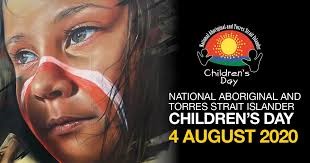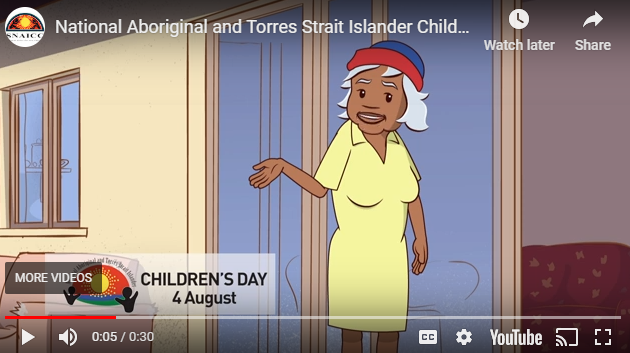“We are the Elders of tomorrow, hear our voice.”

National Aboriginal and Torres Strait Islander Children’s Day is held on 4 August each year to honour and celebrate the importance of Aboriginal and Torres Strait Islander children within family and community.
First held in 1988, the Secretariat of National Aboriginal and Islander Child Care (SNAICC) also uses this day to increase awareness in the wider community of important issues impacting on Aboriginal and Torres Strait Islander children.
National Aboriginal and Torres Strait Islander Children’s Day is the largest national day to celebrate our children, and this year we celebrate with the theme We are the Elders of tomorrow, hear our voice.
Embrace National Aboriginal and Islander Children’s Day 2020 and find innovative ways to mark this special day, whether with your family at home, at your early years’ service, or school.
Looking for some fun and creative cultural activities for your kids? Check out VAEAI’s Aboriginal Education Activities.
Explore SNAICC’s brand-new website. The site provides children, families and early childhood educators with resources, activities and ideas to help you learn about and celebrate Children’s Day. Check out the Activities page on the new #ChildrensDay site.
To start off Children’s Day 2020 celebrations, SNAICC have asked children to send them a drawing: ‘What does culture mean to you?’
Download this template and email it to [email protected]. See some of the great entries they have received so far. #EldersOfTomorrow #StrongInCulture
Hear more from 2019 Ambassador Nanna, from the animated children’s series Little J & Big Cuz

Koorie Perspectives: Victorian Curriculum
VCHHK076 Significance of days and weeks celebrated or commemorated in Australia and the importance of symbols and emblems, including Australia Day, ANZAC Day, Harmony Week, National Reconciliation Week, NAIDOC week and National Sorry Day: History 3-4.
VCHHK094 The different experiences and perspectives of Australian democracy and citizenship, including the status and rights of Aboriginal and Torres Strait Islander peoples, migrants, women, and children: History 5-6.
VCHHK154 Significance of the following events in changing society: 1962 right to vote federally, 1967 Referendum, Reconciliation, Mabo decision, Bringing Them Home Report (the Stolen Generations), the Apology and the different perspectives of these events: History 9-10.
For more Koorie Perspectives in Curriculum see our Koorie Education Resources.
For help in creating Koorie-inclusive learning environments that respect and reflect Aboriginal people, content and perspectives – benefitting the experiences of all children see our Early Childhood Resources Walking Together & Aboriginal Early Childhood Protocols.

